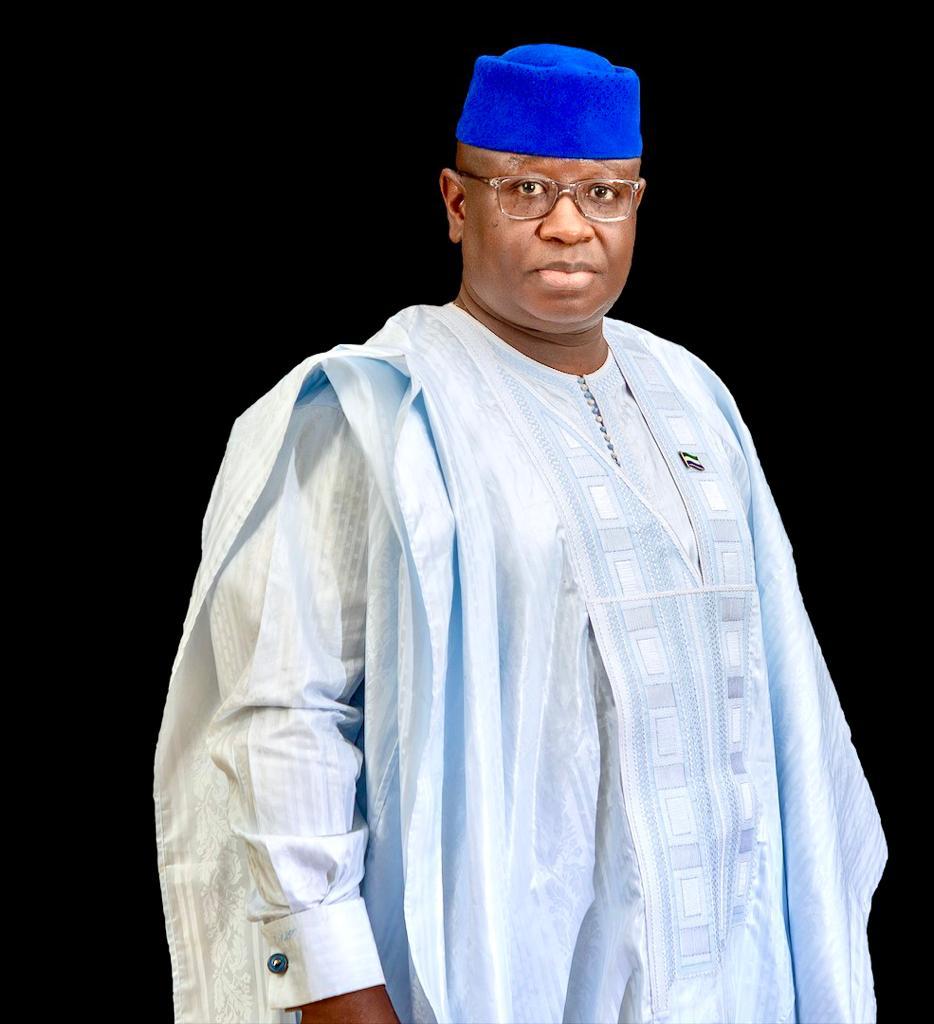By external contributor (David Smith, Business Analyst, UK)
President Julius Maada Bio’s visit to the House of Lords in the United Kingdom on the invitation of a high-ranking member of the House of Lords and British Prime Minister’s Trade Envoy to Uganda and Rwanda, Lord Dolar Popat, was greeted with a lot of enthusiasm.
With a vibrant array of political, business and diplomatic leaders, including the British Minister of State for Development & Africa, The Rt Hon Andrew Mitchell MP, Commonwealth Secretary-General, Hon Patricia Scotland KC, Edris Elba, OBE, British Born Hollywood superstar, amongst others, the event provided a platform to x-ray the President’s developmental strides, as leaders took turns to highlight the first-hand experience of his leadership footprints. In the words of Edris Elba, “There is something remarkable happening in Sierra Leone. In the last few years, we have seen the number of girls going to school increase from 17% to 78%; and the country’s parliament unanimously passed the Gender Bill to promote mandatory gender inclusion across political offices and businesses.”
Mr Elba’s submission accentuates the astronomical strides made by the Bio-led government amidst very challenging economic conditions.
As the upcoming presidential polls draw nearer, President Bio is banking on the progress made by his administration in the last five years to secure a victory at the polls.
President Bio emerged in 2018, pledging to transform the West African nation’s economy and social systems. The country had been struggling with poverty, corruption, weak institutions and poor infrastructure. President Bio’s government has implemented several policies aimed at reviving the country’s economy, strengthening its democratic institutions, and improving the lives of its citizens.
Economic Development
Under President Bio’s leadership, Sierra Leone’s economy has seen significant growth. The country’s GDP grew by 5.1% in 2019, up from 3.5% in 2018. The government’s flagship Free Quality Education program has seen more than two million children enrolled in school, with plans to expand the program further. This initiative has increased education access, particularly for disadvantaged children.
President Bio’s government has also made significant investments in infrastructure development. The government has completed several road projects, including the construction of a four-lane highway linking Freetown to the provinces. He also recently unveiled a brand-new airport in Lungi, fully equipped with modern state-of-the-arts equipment. These projects have created employment opportunities and opened up new areas for business investment.
The Bio-led administration has prioritized the reform of the mining sector, insisting that more revenue should accrue to the resource-bearing communities. These reforms have also led to the hiring of over 6000 more citizens.
With the government’s new Mines and Minerals Development Act 2022, many communities in mining areas are also experiencing more direct benefits from the extractive sector today than ever before. Surface rent, taxes, and community development agreement (CDA)payments have increased tenfold (from 0.01% to 1%). 20% of royalties now go back into mining communities. The CDA funds are used towards the sustainable development of the mining communities.
Today, transparency and accountability in and governance of the mining sector are also at an all-time high, with Sierra Leone achieving a remarkably high implementation score of 87.5% from the Extractive Industries Transparency Initiative (EITI).
Improvement in Healthcare
President Bio’s government has made significant investments in the healthcare sector. The government has increased the budget allocation for healthcare from 6% in 2018 to 11.6% of the national budget in 2021. This increase has enabled the government to undertake several initiatives to improve access to quality healthcare.
The government has constructed several hospitals and health centres across the country, which has increased access to medical care for Sierra Leoneans. The government has also implemented the Free Healthcare Initiative for pregnant women, lactating mothers, and children under five. The initiative has significantly reduced maternal and child mortality rates in the country.
Strengthening Democracy
President Bio’s government has also made significant strides in strengthening democratic institutions in the country. The government has undertaken several initiatives to promote transparency, accountability, and good governance. Unlike the previous government, President Bio announced the dates of the June 24th elections way ahead of time, allowing parties to prepare for the elections.
The government has implemented a National Anti-Corruption Strategy to fight corruption and improve accountability.
The government has also undertaken several reforms to strengthen the judiciary and other democratic institutions. The government has increased the budget allocation for the judiciary and has appointed several new judges. These measures have improved the efficiency and effectiveness of the justice system in the country.
While the Bio-led administration has scored high in various development indices, more needs to be done. In his whistle-stop thank-you and project assessment tours to different chiefdoms and regions in the country in the last couple of weeks, President Bio maintained that he is not unaware of the present challenges; he remains committed to redoubling his efforts towards solving most of the country’s critical challenges as he prepares for another term of 5 years. He stated that while the last five years have been built on the New Direction Agenda, the next 5-year term will be anchored on the “Right Direction Agenda: Consolidating Gains, Increasing Investments, and Accelerating Transformation.” The government has implemented several programs to create employment opportunities for young people, such as the Youth Entrepreneurship and Employment Program. Still, more needs to be done to address this issue.
As the elections draw closer, 28-year-old Abdulai Kamara believes the election is a two-horse race between President Julius Maada Bio and All Progressive Congress, APC candidate Dr Samura Kamara. However, he maintained that “its victory for President Bio as the opposition seems to be in utter confusion.”
David Smith is a business analyst, with over 30 years’ experience covering Sub-Saharan Africa, he writes from London, United Kingdom

